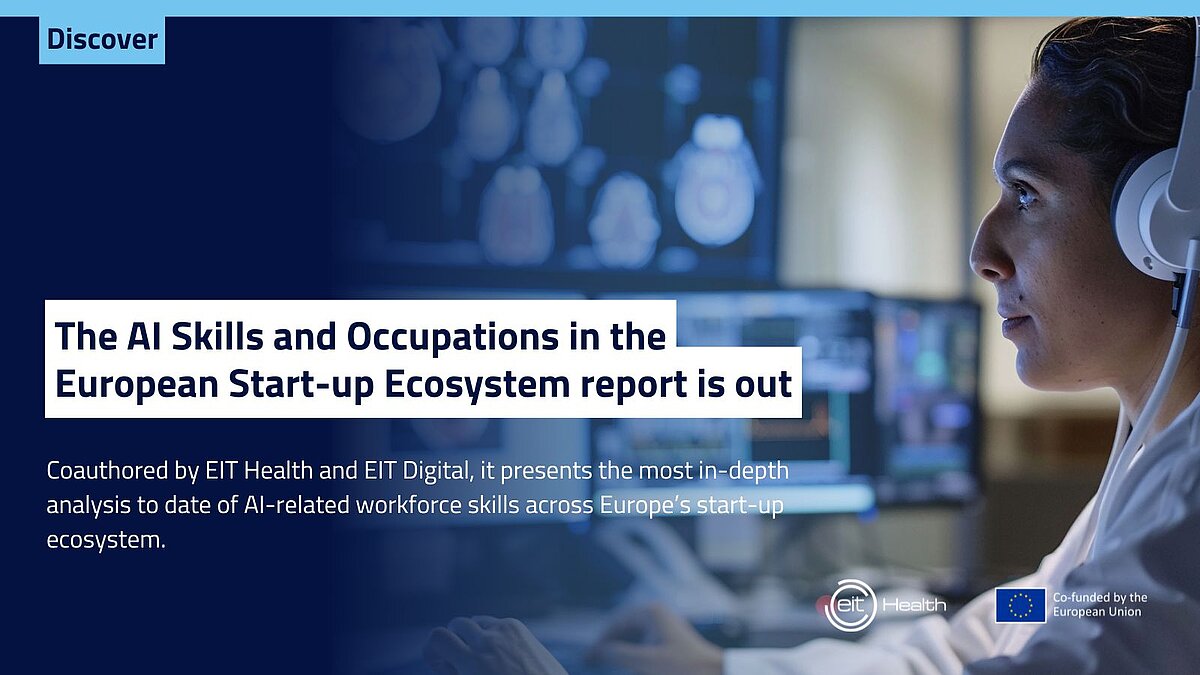28DIGITAL announces strategic scouting agreement with leading European insurance group
28DIGITAL has entered into a strategic agreement with one of the most important insurance…
A comprehensive new study analyzing Europe's largest dataset of AI startup talent reveals that the continent's most innovative AI companies succeed not through coding skills alone, but by combining technical expertise with deep sector knowledge and interdisciplinary soft skills.
The AI Skills and Occupations in the European Start-up Ecosystem report, co-authored by EIT Health and EIT Digital—both part of the European Institute of Innovation and Technology (EIT)—examined skill profiles of over 23,000 professionals across 3,600 AI-focused startups to identify what drives innovation success across European regions.
While programming and machine learning capabilities are widespread across Europe's AI ecosystem, the research reveals that startups combining these technical foundations with sector-specific expertise—such as healthcare, engineering, or manufacturing knowledge—and crucial soft skills like project management and communication consistently outperform competitors relying on general IT skills alone.
The findings, sourced through EIT Health's SkillSync platform and cross-referenced with the European Innovation Scoreboard, provide the first comprehensive, data-driven analysis of which workforce capabilities correlate most strongly with regional innovation performance.
The report's release comes at a key moment for European AI leadership, coinciding with the European Commission's AI Continent Action Plan and similar initiatives across member states. The research provides evidence-based recommendations for policymakers and educators seeking to strengthen Europe's competitive position in the global AI economy.
Key findings include:

The urgency of this skills development is underscored by current European digital readiness levels. According to the 2022 Digital Economy and Society Index, skills gaps affect a quarter of European SMEs, highlighting the need for the integrated approach to AI talent development outlined in the report. "Innovation doesn't happen in isolation," said Graham Armitage, Director of Delivery at EIT Health. "At EIT Health, we see through our programmes that real impact comes from bringing education, research and business together in practical ways. This report reinforces that it's not just about connecting these sectors—but about enabling the flow of skills between them."
The SkillSync platform, which provided the research data, offers access to over 20,000 AI courses alongside assessment tools for AI maturity and EU AI Act compliance, creating a feedback loop between workforce analytics and training program development.
The research suggests specific pathways for regional development. For example, Eastern European startups could build on their strong ICT foundations by developing multidisciplinary soft skills and sector-specific expertise to unlock their innovation potential.
As co-author of the report, EIT Digital is translating these insights into action through a comprehensive approach to AI skills development across Europe. The organization leads the EIT AI Community collaboration between six European Knowledge and Innovation Communities while spearheading multiple initiatives to develop AI talent at scale.
"This research provides a roadmap for developing the multidisciplinary AI talent that drives innovation," said Federico Menna, CEO of EIT Digital. "Our comprehensive programming across education, acceleration, and professional development creates the integrated ecosystem needed to translate these insights into Europe's AI leadership."
EIT Digital's response includes:
The report identifies six regional skill clusters across Europe using a new Skill Intensity metric, allowing educators, policymakers, and corporates to benchmark workforce strengths and plan targeted upskilling programs. This evidence-based approach ensures training initiatives align with actual market demands rather than theoretical requirements.
"Competence in general IT skills alone does not drive innovation," said Dr Magí Lluch-Ariet, Data Manager at EIT Health. "To truly unlock AI's potential, we need to go beyond just digital skills and cultivate advanced, interdisciplinary capabilities that reflect the real-world needs and opportunities of each sector."
Salvatore Moccia, Director of Education at EIT Digital, added: "The findings validate our approach of combining technical excellence with sector expertise and soft skills development. Through initiatives like our Master School network and the (d)Academy platform, we're creating the integrated learning pathways that Europe needs to lead in AI innovation."
Receive the latest news and events updates by subscribing to our newsletter.
Are you a member of the media and would you like to contact us?
→ Get in touch with us here
Initiated by the EIT
